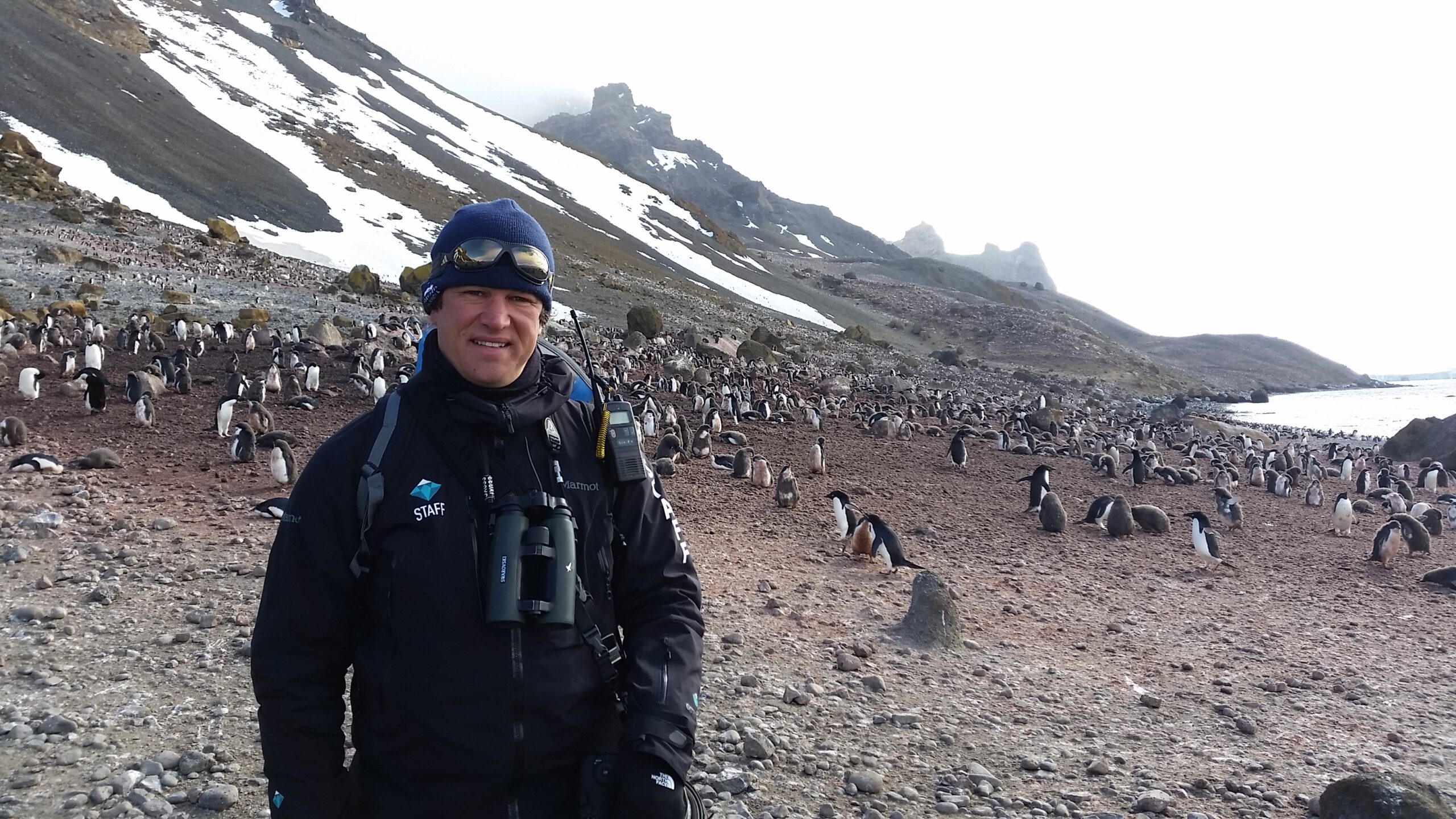Text: Milou van der Horst
They are indispensable on campus: cleaners, caretakers, catering staff, gardeners, receptionists — it’s a long list. Resource looks up these key people. This time, meet Hans Verdaat (40), research worker at Wageningen Marine Research (WMR) in Den Helder.
‘I’ve been birdwatching for as long as I can remember. Over time, that came to include marine mammals too. When I was a boy, I wanted to be a forest ranger. I did the Forest & Nature Conservation programme in Velp, and I discovered my love for the sea during my internship. So I went on to do the Coast & Marine Management programme at Van Hall University of Applied Sciences in Leeuwarden and now I’ve been at WMR for 15 years.
Marine work is a mix of everything I enjoy: biology, safety, logistics and operational tasks. I help organize and carry out research projects. For example, I arrange the materials, transport and permits to carry out measurements, sometimes I hire ships or planes, and I help get the research equipment into the water.
I no longer get so excited about seeing a whale
In recent years, I have also been responsible for safety on board ships. I make sure people get a medical check-up and have had training, and check that the machinery is certified and the ship fulfils all the requirements. Sometimes it will take me days to prepare for an experiment that is completed in a couple of hours. Despite all the preparations, things often don’t go according to plan due to weather conditions or technical issues or because the tides are not as expected. So you need to be flexible for this work and it’s not a nine-to-five job either. We often work in the weekends if the weather conditions or tides are better then.
I used to travel abroad regularly before the Covid crisis. The expeditions to Antarctica were particularly special; I took part in four of those. We studied the spread and population sizes of marine mammals, especially whales. These days, I no longer get so excited about seeing a whale but the research there was quite something: you spend 10 weeks with hardly any communication with the outside world, in places where there is little research being done and very few people ever come. It was a privilege to work there.
In the past year, all international studies have been postponed and we have been doing work that had previously been put on hold. Once we are allowed to travel again, we’ll see which international research we can pick up quickest — probably Bonaire or Spitsbergen. I can’t wait!’

 Hans Verdaat with Adélie penguins near Brown Bluff, Antarctica. Own photo.
Hans Verdaat with Adélie penguins near Brown Bluff, Antarctica. Own photo.